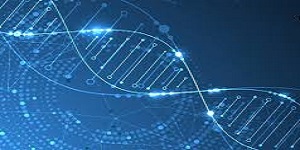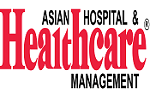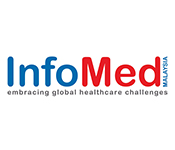
5427

Theme: Advanced approaches in bioavailability and bioequivalence
Webinar on Bioavailability and Bioequivalence welcomes each one of you to attend a global conference in the field of Pharmacy which is held on March 30, 2021. The webinar emphasizes the theme “Advanced approaches in bioavailability and bioequivalence”. BABE Webinar provides an international dais for Scientists and Pharmaceutical professionals to Exchange Ideas, Knowledge and Networking. Knowledge of drug metabolism is useful in both the design of new drugs and the improvement of existing drugs. This is the platform for exchanging your ideas and learn novel concepts related to your field from the international speakers as well as the professionals participating in this symposium.
Session 1: Drug metabolism
One of the most challenging advanced research areas in pharmacology with in the new millennium is to know why every individual respond differently to drug therapy and to what extent that individual variability in disposition is liable for the observed differences in therapeutic efficacy and adverse reactions. Drug metabolism reactions are of two stages: stage 1 (functionalization) reactions like oxidation.
Bioavailability and Bioequivalence Webinar | Bioavailability and Bioequivalence Congress | Bioavailability Meeting | Bioavailability Webinars | Bioavailability Events | Bioavailability and Bioequivalence Workshops
Session 2: Absolute & Relative bioavailability
Absolute Bioavailability Compares the bioavailability of the active drug in systemic circulation following Non-intravenous administration with an equivalent drug following intravenous administration for drugs administered intravenously, bioavailability is 100%. Determination of the best administration route.
Relative Bioavailability compares the bioavailability of a formulation (A) of particular drug in comparison with another formulation (B) of an equivalent drug.
Bioavailability and Bioequivalence Webinar | Bioavailability and Bioequivalence Congress | Bioavailability Meeting | Bioavailability Webinars | Bioavailability Events | Bioavailability and Bioequivalence Workshops
Session 3: Factors affecting Bioavailability of a Drug
Factors affecting bioavailability are differentiated into pharmaceutical and pharmacological factors. By disintegration, dissolution and absorption the bioavailability of drugs to be in this decreasing order. Pharmaceutical factors are particle size, nature of excipients and adjuvants, degree of ionization. Pharmacological factors are gastric emptying and gastrointestinal motility, gastro intestinal diseases, food and other substances, first pass metabolism, drug-drug interactions, and route of administration.
Bioavailability and Bioequivalence Webinar | Bioavailability and Bioequivalence Congress | Bioavailability Meeting | Bioavailability Webinars | Bioavailability Events | Bioavailability and Bioequivalence Workshops
Session 4: First pass metabolism
The first pass effect is a phenomenon in which a drug gets metabolized at a specific location in the body that results in a reduced concentration of the active drug upon reaching its site of action or the circulation. The first pass effect is usually related to the liver, as this is often a serious site of metabolism. Let’s take a example of 100 drug molecules that are ingested in pill form. Only 90 of those molecules survive the alimentary canal. Then 81 make it past the gut wall and into the hepatic portal vein. Of the 81 that enters the liver, only 41 can make it to the systemic circulation.
Bioavailability and Bioequivalence Webinar | Bioavailability and Bioequivalence Congress | Bioavailability Meeting | Bioavailability Webinars | Bioavailability Events | Bioavailability and Bioequivalence Workshops
Session 5: Concept of Equivalents & Pharmaceutical equivalents
Pharmaceutical equivalents are drug products in identical dosage forms and route(s) of administration that contain identical amounts of the identical active drug ingredient, i.e., an equivalent salt or ester of the same therapy moiety, or, with in the case of modified-release dosages that need a reservoir, such forms as prefilled syringes where the volume may vary, that delivers identical amounts of the active ingredient over the identical dosing period; it don't necessarily contain an equivalent inactive ingredients.
Bioavailability and Bioequivalence Webinar | Bioavailability and Bioequivalence Congress | Bioavailability Meeting | Bioavailability Webinars | Bioavailability Events | Bioavailability and Bioequivalence Workshops
Bioavailability-bioequivalence 2021 bring together collect specialists like eminent scientists, senior/junior analysis fellows, professors, students, members of the various medical and clinical associations, medicine and medical technology companies from everywhere the world to share an interest in the field of bioavailability-bioequivalence to discuss the new ideas and research ideas with developments within the field which is to be applied in close to future for the prosperity of humans. The event of latest techniques of diagnosing, treatment, and prevention should be recognized which is able to imply a big role within the lives of individuals. The distributed findings and researches relating to this subject are given another priority as these ar the stepping stones for the future.
- Highlights
- Supporting Journals
- Drug metabolism
- Absolute & Relative bioavailability
- Factors affecting Bioavailability of a Drug
- First pass metabolism
- Concept of Equivalents & Pharmaceutical equivalents
- Clinical Medicine and Therapeutics
- Insights in Biomedicine
3 Renowned Speakers
KATERYNA ZUPANETS
National University of Pharmacy
Ukraine
INWOOK CHOI
Korea Food Research Institute
South Korea
YUAN CHEN
Genentech
United States of America
Media Partners & Collaborations
Dear Eliza, Thank you for that wonderful opportunity given to share my experiences during the conference. I would like to place on record the smooth conduct of the conference. My appreciation goes a long way to Eliza for her timely communication and well advanced information disseminated processes. The presentation schedule and the time mentioned in the mail sent were also strictly followed. All the best. Regards Kalyani Kenneth Speaker | Psychiatry-2021
Kalyani Kenneth
Dear Laura, Thank you for giving me the opportunity to present my current work! I really enjoyed listening and connecting to a wider international scientist through this conference. And I am really looking forward for the physical conference next year! Best regards Sharmaine
Sharmaine Reintar
It was my pleasure to be a part of the conference. The talks were technically profound. Thank you once again.
Anupam Mukherjee
Thank you very much for the message. I am glad that the presented poster was appreciated. I'm also grateful for the certificate. Dispite my main work was the subject presented in the session, it would be a pleasure to participate in the webinars.
Ana Rita Domingues
Thank you for your appreciation. I love the support received from you and your admirable patience from invitation till the end of the conference. Thank you very much. I hope to participate in future conferences.
Munezza Khan
Am really grateful for you inviting me to this great event... Am thrilled to be part of this great team, I feel honored 😀😃😄🤝🏻
Aysha Haruna
The conference was arranged nicely through a Webex. I found the sessions interactive and informative. I am looking forward to join the next annual meeting of plant genomics in osaka, japan in april 2022.
Ruchika
It was a nice and well-organized meeting! Thank you for all your efforts of having put it together.
Vladimir Startsev
The conference was exciting. I enjoyed so much meeting new colleagues at the venue. I would like to express my sincere gratitude to you for your assistance and opportunity. It was a good experience attending this conference.
Daniela Capdepon
How much I appreciate your support, you and your job are meaningful. I always wish the best for you. Thank Laura a lot
Kevin Ton
Hats off to you and fellow organizers. Great opportunities for sharing and networking!
Karen Swanepoel
It was a pleasure to participate in this year’s meeting (even in webinar format due to the COVID-19 pandemic) and I hope the participants enjoyed my talk. There were some interesting talks taking place today and the whole experience was enjoyable like last year. Please rest assured that I will be happy to join next year’s meeting as well, hopefully with a physical presence.
Vasileios Fotopoulos
Thank you for your effort for having made "Pharmacology 2019 conference" wonderful success. Thank you again for that.
Ryong Nam Kim
I enjoyed the conference. Italy will be a great place to have the next conference. I look forward to 2020 edition.
Paul Njiruh Nthakanio
I am very happy to make a seminar in the conference. If I have a chance to present my work in your conference, I would talk it in your conference in future.
Takayuki Momma
It was good to connect with a diverse group of scientists - thanks very much for the invite
Thomas P Brutnell
It was a nice experience for me to attend plant genomics conference in Osaka and meet researchers from different countries.
Behnam Derakhshani
It has been an excellent experience.Thank you a lot for this opportunity. I enjoyed it very much!
Julio Cesar Vega
I definitely would like to join your conference again. It was so great about everything. I think I would say great coordination and services.
Maryam Jenabi
Amazing experience full of knowledge and meeting new people. Looking forward to being back
Thomas Frederick Hartley
It was a pleasure and a great opportunity to be one of the Keynote speakers. I welcome the opportunity to speak at additional conferences in the future. Please keep my contact information for future consideration.
Sharon Nixon-Crenshaw
Thank you for assisting in my participation in a superbly organized Conference. I especially appreciate that you made a special session for me. And once again, sincerely thank you for inviting me to the Conference.
Albert Krashenyuk
Thank you for all your help for the meetings. It was for me a great experience to be in a kind and so scientific group.
Katia lollai
I enjoyed a lot thank you. I thank Meetings International for the quality of the event. All the speakers i had notice of were well prepared and highly motivated Compliments!
Dora Dragoni Dıvrak
I enjoyed participating in the congress and thank you for your efforts to make it easy for participants. Please keep me in mind for future meetings.
Debendra Kumar Tripathy
It was a nice meet and we had a wonderful time in Paris Thank you once again for the arrangement. I would be interested in participating future meetings.
Prasanna Udupi Bidkar
Thank you so much for giving me a chance to my research presentation in your conference.
Seyedataollah montazam
I enjoyed being in the conference. Thanks for you excellent arrangement for my participation. Looking forward for next meetings.
Afaf El Ansary
The conference is very nice, Thank you so much for inviting me to your esteemed event.
Esmira Naftali
The conference was very good. I hope to attend similar meeting in future. Thank you .
Lia Monica Junie
I am indeed glad to acknowledge that for last two days during Optics-2018, International conference on Lasers, Optics and Photonics it was Successfully conducted and we had very fruitful discussions and interactions to make many great friends for life. Many Delegates had interactions with many famous Japanese University Professors and company Managers too for their future possibilities of R&D collaborations. I had arranges a session for such interactions while eating and discussing with relaxed environment and taking group pictures. The hospitality provided by your Organization Committee Members was excellent to help completing Conference Inauguration, all Keynote Speeches, Oral Presentations And Poster session had very high-quality research presentations in many advanced research areas such as Spectroscopy, Ultra high power Lasers, Fibers, Advances in stabilized high frequency mode-locked pulsed Fiber Lasers, MEMS, Optical Interconnects, Photonics and Advanced Optical Biomedical Imaging, THz and optical communications and Interconnects, theoretical and experimental research and so on from highly recognized Professors and Researchers in Japan and advanced institutions in many advanced countries.
Dr. Brahm Pal Singh
I wish to thanks you for my perfect time on conferense in Osaka. It was great experience for me.
Anton Podkopaev
I wish to thanks you for my perfect time on conferense in Osaka. It was great experience for me.
Dr. Anton Podkopaev
I would refer this organization future conferences to my colleagues and also love to join again in diabetes related events. More topics on diabetes should be there in future diabetes conferences.
Radia Boufermes
Thank you for the invitation and the opportunity to participate. It was very good.
Juliana Francisca Grossi Heleno
Thank you very much for the invitation and it was a great honor for me to join this conference. I had a great time.
Alkis Konstantinopoulos
Thank you so much. Really we appreciate the Congress, hope next time it will be longer. Everything was ok, the venue, colleagues, organizing team. Thank you and hope to meet soon in other Congress soon.
Sameh Samy Abdou
It was a great pleasure of mine to be there during the conference looking forward to joining your future conferences
Ahmed Halim Ayoub
The theme of the conference and the scientific panel are very interesting! I am looking excited to learn many new things on this innovative platform
Lisa mattheu
I would love to attend the Infectious Diseases 2019 conference. The hospitality, the renowned speakers, and the city are awesome. Looking forward to it!
Dr. Ianane Jireh Ramos canizares
Hello Daniel, Thank you for the invitation to the conference. It was an interesting experience. I am glad that my presentation was liked. Like the effects of my work. Stay in touch. Best Regards !
Aneta Zymon
Thank you to Daniel Raybin with Wound Care 2018 for allowing me to be the Keynote Speaker for the conference. Dr. Jeff Mayo and I met colleagues from other countries such as Poland and Ukraine that work in plastic medicine and surgery. We are excited to share our knowledge of wound care in the veterinary industry so that our human medicine counterparts can offer the same standardized care that we utilize in the US. Thank you to Regenlabs for sponsoring the event and Jorgensen Laboratories for providing us with a great sponsor to represent our mission.
Nicole LaForest
Dear Daniel! Thank you for the conference, for your accommodation and the opportunity to see the most romantic, mysterious, fabulous Amsterdam
Nadiia Nor
Congress was good, the quality of the presentations was good. The choice of Singapore as strategic headquarters has been good
Buonocore D
Thanks for your invitation. I enjoyed participating at he conference in Rome and am interested in participating again next year in Paris.
Daniel Benetti
Dear Julie, Many thanks to you as you offered me this opportunity to come and participate at this valuable event in Chicago. I think you are great professional and made huge efforts for the event in terms of organization, engaging speakers, etc. And also you have sense for people, act as empathic person what is very important for me. I was very happy and honored to be invited as a speaker at World Biosimilars Conference in terms to present company Ewopharma AG as business partner of different pharma companies in Central and Eastern Europe, especially company Biogen with its portfolio of biosimilars and share my commercial experience in launching biosimilars! I found the conference interested in terms you selected very qualitative speakers from different areas: innovation and science, manufacturing and commercialization. From my perspective, the most interesting topics were: Sarfaraz K Niazi: “Biosimilars: Why are they so widely misunderstood?” Ronald P Dudek: “The adapter CAR Platform: From antibody to CAR T cell therapeutic” Jose Carlos Ferreyra Lopez: “Market access barriers and market value in Mexican public sector for biosimilars” Milind Antani: “Similar biologics in India- Impact of regulations on business” Joel I Osorio: “RegenerAge System “ (So I will be very happy if you could share these mentioned presentations with me!). I can see more potential for further improvement to put 100% focus on Biosimilar topics and to attract more specialists/professionals to gather. It will be excellent if you could attract more speakers from Europe to share their experience. So please consider this option how to attract them in the future (if I got some nice ideas will share with you!).
Sandra Simic
Thanks for giving opportunity to share my research at 3d printing conference .I meet global experts and exchange our ideas.Two days conference are going very good ,workshop session,exhibition .I felt moved to contribute next year also..
Rajkumar Velu
It is wonderful conference of 3d printing & Bio printing in health care .participates are coming from world wide 3d printing & Bio printing experts .Workshop sessions is too good .
Lifeng Kang
• Good workshop session at conference with lots of discussion among audiences and speakers about the regulatory aspect of 3D printed medical devices. • Many of the topics were good and interesting. • It will be good if the organizer could have invited more participants as well as selecting the speakers based on proven and relevant track record. • It will be better if there are people who keep track of the time for each topic.
Albert Sutiono
Conference was superb. It was well conducted. I appreciate all the speakers, presenters and organizers. I am very proud to be part of this event.
Rajani singh
We had a very good session at cardiomersion in which we discuss about the integrated cardiomersion approach to the delivery of cardiovascular case. Thank you to all the speakers who came across the globe. Finally I would like to thank the organizers for making such a remarkable event.
Deepak Puri
I have been a part of this conference and I am very proud to see the conference very well organized and people are helping us and each other to present their case reports and research. Thank you very much to the organizers for making such great events
Suresh Vatsyayan
The event was very nice and I want to thank all the participants, presenters and the organizers. We hope in future we will have more events like this
Yuan Chen
The BABE conference was very interesting and lot of scientific sessions were covered and highlighted. Special thanks to the Organizing Members and the participants
Kateryna Zupanets
Conference was good, thanks for organising. I felt moved to contribute throughout, and felt that to a certain extent I acted as a moderator throughout the event .It is very happy for me.
Alexander M. Korsunsky
I want to express my graduate and thanks to you for all efforts you put to organize such a successful conference. For 2 days I enjoyed the company of brilliant and beautiful minds from all over the world. I had a great chance to exchange expercties with them and in large my horizons. I want to thank you again for organizing the International Conference of Petroleum Engineering 2018, Dubai, UAE and hope to meet you again very soon.
Essa Georges Lwisa
I enjoyed participating in the congress and thank you for your efforts to make it easy for participants. Please keep me in mind for future meetings relating to bariatric surgery, I would be interested in participating or being part of the organizing committee.
Peter Harris
Meetings International meetings are great way to receive way to receive other scientists in different parts of the world doing, These meetings provides the opportunity for you to work at latest concepts from different peoples also specifically it allows the opportunity to call to the new relationships when it resolves in future collaboration across the photolamps
Suzanne Tinsley
I enjoyed conference with Meetings International it is a mutal legitimate.It is always with first move which encourages scientists for practicing ability based practice It also gives lots of opportunity for discussions as well as collaborations in future
Dr. Marie Vazquez Morgan
It was a great experience for us to attend the conference. Had good interactions with speakers. Many thanks to you and Mr Peter Harris for giving us opportunity to participate and visit Japan as well. Wish to attend further conferences in future!
Kalpana Kulkarni
The first day was very good. It was meaningful to spend academic meeting. I thank you for your consideration.
Gagan Dhall
International meeting was good looking forward for next meetings.There can be more we can do because there is always scope for improve.
Suman Lata
Thanks for your greeting letter! We enjoyed the conference. Sure! We will meet again in 2019!
Dra Milagrosa C. S. Liu
First of all I would like to say many thanks to YOU and The Organization / Planning Committee, for I have been given the opportunity to join in this very Prestigious Event. I am also grateful to meet with researchers from other countries who have innovative research’s. Hopefully it could upgrade to my knowledge and more increases my interest in this field of science. Nice to join in this event I wish i could be join on the Traditional Medicine 2019.
Yunita Sari Pane
It was great experience for me. My talk was very much liked by all receipients at Osaka.
Mohammad Kamil
I am indeed glad to acknowledge that for last two days during Optics-2018, International conference on Lasers, Optics and Photonics it was Successfully conducted and we had very fruitful discussions and interactions to make many great friends for life. Many Delegates had interactions with many famous Japanese University Professors and company Managers too for their future possibilities of R&D collaborations. I had arranges a session for such interactions while eating and discussing with relaxed environment and taking group pictures. The hospitality provided by your Organization Committee Members was excellent to help completing Conference Inauguration, all Keynote Speeches, Oral Presentations And Poster session had very high-quality research presentations in many advanced research areas such as Spectroscopy, Ultra high power Lasers, Fibers, Advances in stabilized high frequency mode-locked pulsed Fiber Lasers, MEMS, Optical Interconnects, Photonics and Advanced Optical Biomedical Imaging, THz and optical communications and Interconnects, theoretical and experimental research and so on from highly recognized Professors and Researchers in Japan and advanced institutions in many advanced countries.
Dr. Brahm Pal Singh
I wish to thanks you for my perfect time on conferense in Osaka. It was great experience for me.
Dr. Anton Podkopaev
I would like to express my gratitude for your engagement in preparation of the Cancer Therapy Summit 2018. It was a valuable experience.
Hong Qin
My active partecipation to the Toronto meeting is just over and motivated by it and by Joseph Ndisang who I met there, I'd like to ask and verify whether I could further collaborate more actively, with no expenses for it, within yr network with my long term scientific expertise and long background in the field of diabetes and also at the light of my previous experience with you over the last year.
Marco Songini
“ The organisation and coordination of the international conference of nanotechnology and nanoengineering was at an outstanding level, it was a great honour to participate in such phenomenal event “
Ahmed Abushomi
I also really appreciated all the scientific contact I made within all these participants - Think that in the future if you might request some help for that renewal activity, I might be helping your team of course (I have some suggestions for making better sort / type of presentation activities for invited speakers of course according to my experience in the field).
Jean-paul Lellouche
The conference sesions proceeded successfuly in a hot and friendly atmospher. I observed during the conference every delegate and speaker interacted wit each other and made friend. I am sure that the conference has become a scientific platform to exchange knowledge among the scientists from all over the world, and they wil conduct a new collaborations. During the conference, onsite organizers spent a great efford. I believe that the level and quality and reputation will increase year to year. Unexpected and unavoidable circumstances can occur at everywhere and every activation, and they can be solved easily. Hope to meet you and your team in another conference.
Osman Adiguzel
Thank you for your friendly mail. I enjoyed the conference with interesting speakers. I did not know anybody at the beginning but I found good companions during the conference.The hotel was good but it was located somewhat outside of Paris. Nevertheless, we had a good time. Anyway, thank you again for your invitation.
Nikolaus Stolterfoht
Thank you! I also think that the event was very successful and very interesting. The variety of thematic session and possibility to meet experts from different fields of marine biology and aquaculture was the biggest advantage of the conference. However, it might be useful to attract more participants to next conference.
Magdalena Jakubowska
Thank you for your kind welcome and appreciated support during the appreciable meeting. Thank you for your kind offer to continue to cooperate to this interesting initiative and I am available to cooperate again in remote and to eventually attend the conference. Thank you and your colleagues and the scientific valuable people that attended the conference for your kind cooperation.
Gianluca Ragusa
Thank you for allowing me to participate in this event, I liked the organization and the people who participated, I made many friends too. Of course I would like to collaborate with you in organizing the next Aqua 2019 conference.
Alfredo Olivera Galvez
A very thorough and well written set of points. It’s great that you took the time to put this together.
Feng Gao
Thank you for offering an unforgettable experience for all of us. We are honored to attend the conference. We are so happy and thanks a lot.
Stef Stienstra
Many thanks for your continuous support throughout the conference. It was the pleasure to participate and shared the findings at such high level meetings.
Pooja Jain
The conference was very enjoyable and I was honoured to be able to present my research at this prestigious event. The conference was particularly good for me as it is always important to keep up with the new developments
Glenda Gray
I had a wonderful time at the conference and learned so much from the presenters. Thank you kindly for putting this event together.
Marc HV Van Regenmortel
Thank you for your arrangement. Our team enjoyed the meeting so much. Wish you all success in the coming meetings!
CHAN Yui Fung
Surely we will maintain our relation in long run. If there is any opportunity for me to start my carrier being fresher and any guidance from you to me. It will be highly appreciated.
Monika kankarwal
I appreciate your polite contact. I enjoyed my first visit to Singapore. It was meaningful to spend academic meeting. I thank you for your consideration.
Kazue Sawami
Thank you for the email ,it was my sincere honor and pleasure to participate , many thanks for the invitation ,well organised conference, great hospitality ,well composed programme,interesting nursing topics, but not very large group size enough group size to be conducive to excellent discussions, I wish you all the success for your further conference
Hana Kadhom

























































































































